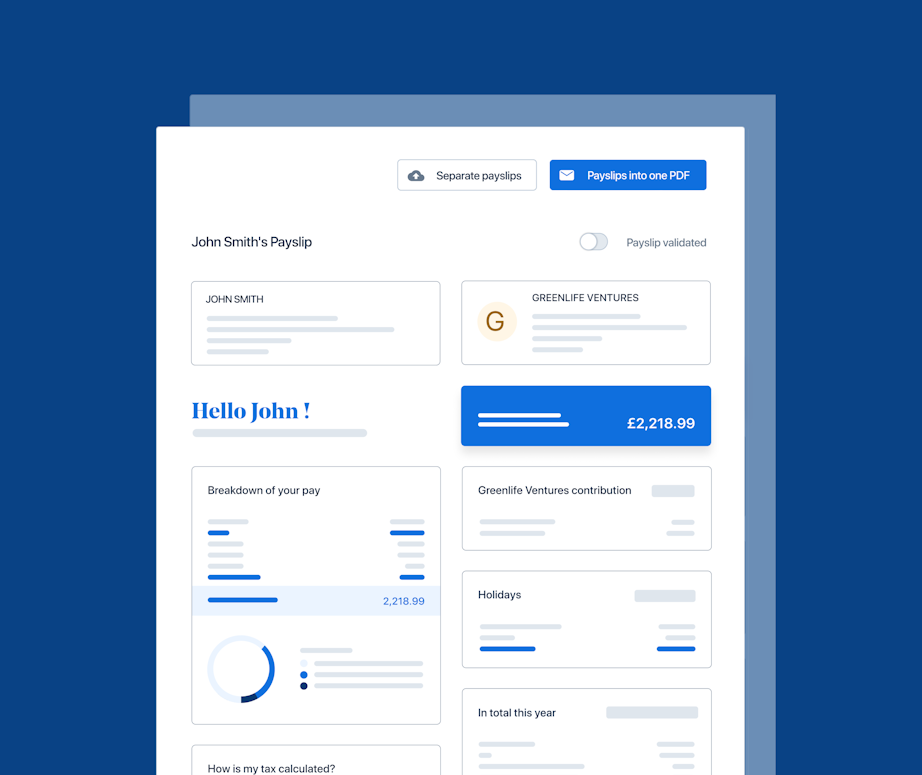Payroll Outsourcing vs Inhouse: the Great Payroll Debate

The payroll outsourcing vs. in-house debate continues to grip organisations across the UK.
Both startups and larger companies keep asking themselves the same predictable questions: "Should we use someone outside the company?" or "have we got the capability and resources to do this in-house?"
Payroll continues to be one of the most commonly outsourced business services in the UK. There are several reasons for this:
payroll is a complex task that requires a certain amount of pre-existing knowledge and spare time;
a lot of companies do not have the resources to perform the task in-house;
many companies already outsource their finance function and therefore decide to outsource payroll too.
Let’s explore the pros and cons of keeping your payroll in-house or outsourcing it. We’ll also determine if it’s possible for businesses to get the best of both worlds.
Payroll outsourcing
What are the pros?
One of the biggest advantages of payroll outsourcing is the expert support received.
Payroll is a complicated and recurring task. With every new legislation change, it continues to evolve and change. If companies are unable to stay on top of new rules and regulations, they run the risk of not being payroll compliant—which can have severe legal and financial consequences.
Therefore, it’s vital that the person administering payroll understands what they must do and stays up to date with any changes.
Another advantage is how much time outsourcing payroll saves.
Payroll administration is often a very manual process that can take up a great deal of time. By delegating these responsibilities to an external supplier, companies don't have to worry about fiddly tasks, such as processing HMRC and pension submissions.
Instead, they can focus on core, more higher-value tasks.
What are the cons?
Despite all these perks, there are several challenges that come with outsourcing payroll.
One is price. Outsourcing something to an industry expert doesn't come cheap. But while cost may be one of the issues associated with outsourcing, there are other areas of greater concern.
Outsourcing payroll is great if the right person or provider is doing it. Many businesses choose to employ the services of their accountant or financial provider to deal with finance-related admin. A significant number will often extend payroll responsibilities to them too.
While financial experts may be able to consult, advise and support clients in decision-making processes, it’s important to remember payroll isn’t necessarily their area of expertise. In other words, companies could unwittingly leave themselves exposed to payroll errors—particularly if their provider continues to use outdated or manual systems.
Another issue prevalent with outsourced payroll is the loss of control over important company data.
For the majority of companies, payroll is their most considerable expense. Outsourcing can lead to poor visibility and leave companies uninformed about costs and month-on-month evolutions. Things can quickly snowball, and for those that rely heavily on budgetary controls, the impact of inaccurate data can be severe.
Keeping payroll in-house
Are there any pros to keeping payroll in house?
Keeping payroll in-house certainly has its advantages over outsourced payroll.
For a start, companies can have full transparency and control over their entire payroll process.
Furthermore, if the employer retains control over how and when payroll is run, internal process changes can be actioned more rapidly than they would be if the function were outsourced. This includes the ability to reverse any errors and gather all relevant data together in one, secure place.
What about the cons?
Of course, in-house payroll does have its pitfalls.
We have already discussed how payroll can be extremely time-consuming and eat significantly into other tasks. While this is undoubtedly true, there’s a much larger issue at play: payroll may not be run correctly if it’s done entirely in-house.
As with payroll outsourcing, the success of an in-house payroll run depends entirely on who is in charge of administering it each month and, perhaps more crucially, how they are doing it.
Unless the person is an expert who can keep on top of the regular legislative changes, it’s likely that errors will occur with the implications potentially extremely serious.
Did you know?
There’s an alternative to just in-house or just outsourced payroll - a hybrid solution that provides in-house payroll with all the perks of an outsourced specialist...
In-house payroll with the benefits of outsourcing
It’s clear that both in-house and outsourced payroll have their pros and cons. However, there is an alternative solution that provides the best of both of these worlds.
It’s what we’ve spent years developing and perfecting here at PayFit. A smart, simple and seamless solution that’s enjoyable to use.
Our platform is far more than just a bog-standard payroll software. Our goal is to offer a solution that supports clients with the administration of payroll from end to end while ensuring total compliance.
Did you know?
Our cloud-based technology is supported by our very own coding language. Legislative changes only take a couple of hours to auto-update, so you can rest easy knowing your payroll run will always be compliant.
Thanks to our dedicated payroll experts, who operate under the guidance of our customer success team, we’re always on hand to answer any of your payroll-specific questions.
On top of this, we’ve programmed the PayFit platform to ensure total legislative compliance.
All payroll calculations are automated while errors are identified and highlighted before a single payslip is sent out. That means people with no prior experience or payroll expertise can use the PayFit platform confidently.
P11D Forms Explained: A Guide For UK Employers In 2025
How Much Does an Employee Cost UK Employers in 2025?

Bank Holidays UK: Employment Law Guide 2025
UK Statutory Notice Periods - An Explainer For Businesses
What Is OTE? How UK Businesses Can Unlock Its Potential







